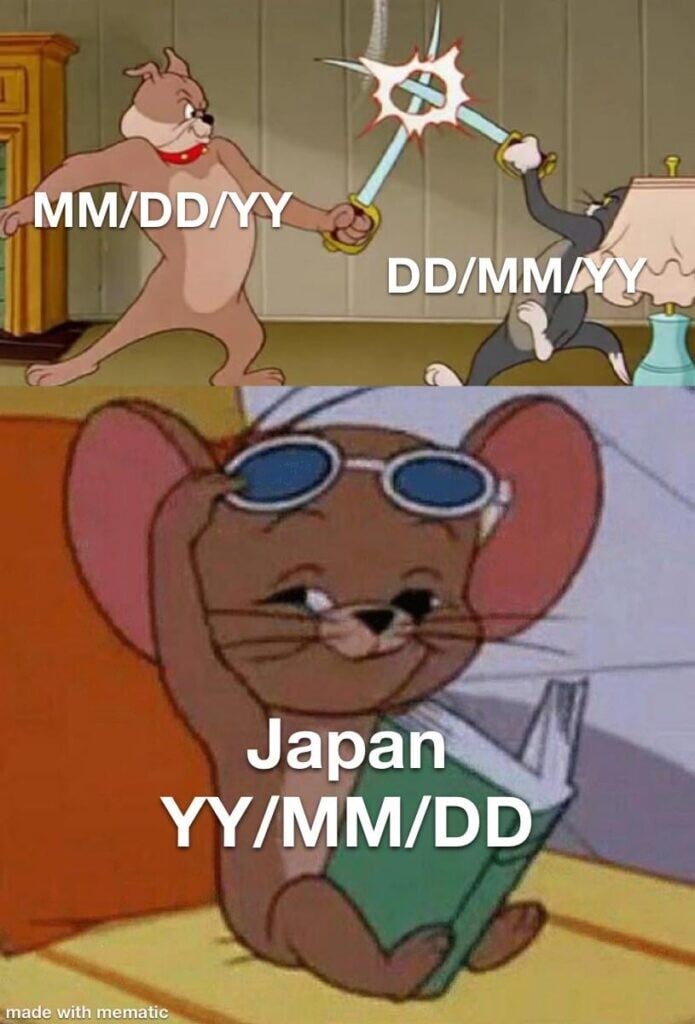this post was submitted on 22 Nov 2023
1038 points (95.9% liked)
Memes
50995 readers
615 users here now
Rules:
- Be civil and nice.
- Try not to excessively repost, as a rule of thumb, wait at least 2 months to do it if you have to.
founded 6 years ago
MODERATORS
you are viewing a single comment's thread
view the rest of the comments
view the rest of the comments

Ironically, MM/DD/YYYY works better for chronological sorting than DD/MM/YYYY, so long as you don't go between years.
Didn't think I'd be saying this but the Americans have an edge over us Brits.
By this logic one might say that DD/MM/YYYY works for alphabetical chronological sort if you don't go between months...
Have another go at this train of thought, mate... You're basically saying "MM/DD" is better at sorting chronologically than "DD/MM", since the year part is taken out of the equation, which is already the established consensus, and not ironical whatsoever. And the ISO standard is already to use YYYY-MM-DD, so that's the winner IMO, hands down. Japan is simply following that but using a slash as the delimiter.
Excuse me, sir, but WAT?
What I said, MM/DD/YYYY is less flawed than DD/MM/YYYY for chronological sorting.
Asian YYYYMMDD way is the best way for computing.., but the American way at least preserves the month and day structure.
When you search or do any stable sort, I would think you want your primary attribute to be the one with most finite values? That way you are front loading the pruning of the search space.
So it's actually on favor of Japanese style